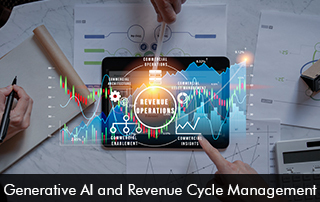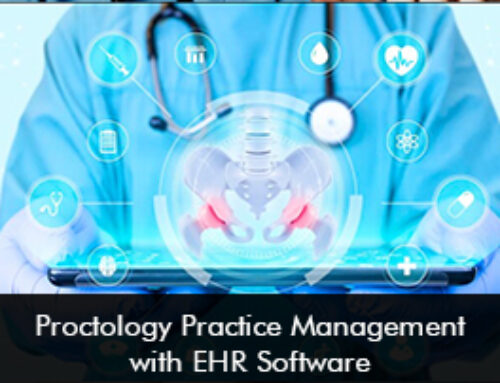Generative AI is the new buzzword and is taking over the healthcare arena slowly but surely. The robust technology of generative artificial intelligence has the power to reduce administrative workload, improve provider efficiency, and even enhance patient care.
Saving Costs with Generative AI and Revenue Cycle Management Software
Research has revealed that if analytics and automation are leveraged properly then the US healthcare industry can realize cost savings of up to $200 billion to $360 billion. Simplifying and automating administrative processes by leveraging technology solutions such as RCM Software and AI functions in revenue cycle management can save costs.
Applications of Generative AI in RCM
Through the automation and optimization of numerous processes, generative AI has the potential to significantly impact revenue cycle management. RCM covers the financial facets of healthcare, such as processing claims, billing, and payments. The following are some examples of how generative AI can be used in RCM:
Automated Documentation and Coding
By evaluating medical information and producing precise billing codes, generative AI can help automate the documentation and coding process. This lowers errors and guarantees that claims are filed with accurate information.
Effective Claims Denial Prediction
To forecast the possibility of a claim being denied, generative AI technology when incorporated into Billing Services EMR Software systems can examine previous claims data. In doing so, healthcare practitioners can increase the likelihood of timely reimbursement by proactively addressing possible difficulties before submitting claims.
Fraud Detection
Artificial intelligence (AI) can be used to spot trends that point to fraudulent activity, like upcoding or billing for services that were never provided. By doing this, the financial effect of false claims is decreased and compliance is improved.
Generative AI Driven Chatbots for Patient Billing Inquiries
Generative AI-driven chatbots can efficiently handle patient billing inquiries by being available 24/7 and reducing the administrative workload on staff members. Any billing concerns or matters can be taken care of round the clock keeping patients satisfied.
The chatbots are designed to respond to patient inquiries in real time. This gives patients their answers without any delay. This helps to improve patient satisfaction scores greatly. Furthermore, chatbots are capable of retrieving and displaying billing data, such as specifics regarding charges, invoices, and payment histories. Without waiting on human support, patients can obtain accurate and current information.
Final Considerations When Deploying Generative AI in Revenue Cycle Management
Prioritizing data security, adherence to healthcare laws (such as HIPAA- Compliance), and continual monitoring to enhance and optimize AI models’ efficacy are critical for smoothly integrating generative AI in RCM. Also, cooperation between AI specialists and healthcare professionals is necessary to create solutions that adhere to industry best practices and standards.
It is important to keep in mind that Generative AI depends on the data it is trained on. If the trained data is not accurate and has a bias to it then the generated content or answer will also show the same bias. To ensure that generative AI benefits patients and revenue the trained data needs to be bias-free and precise.







